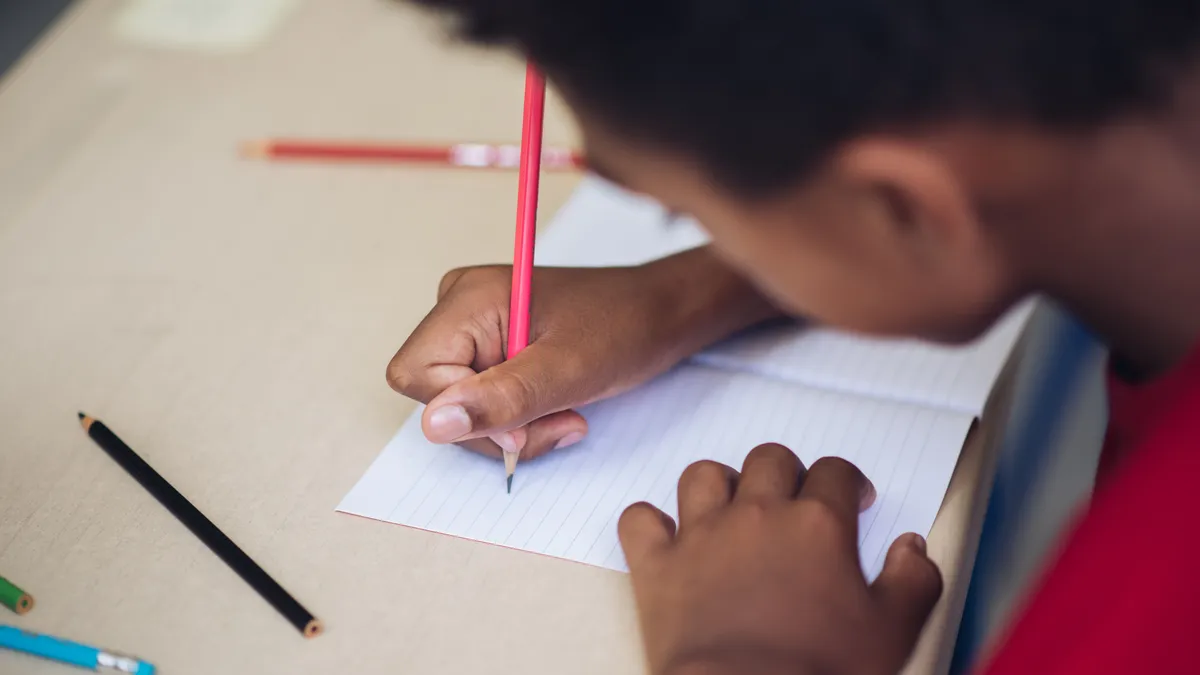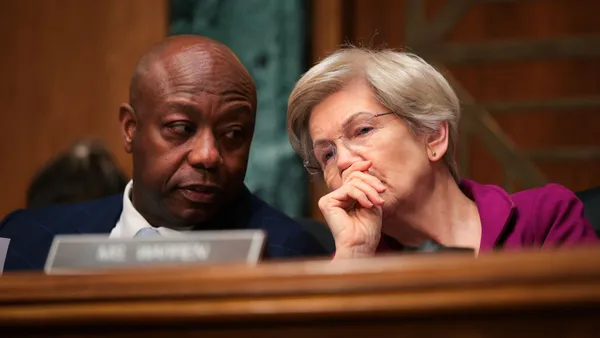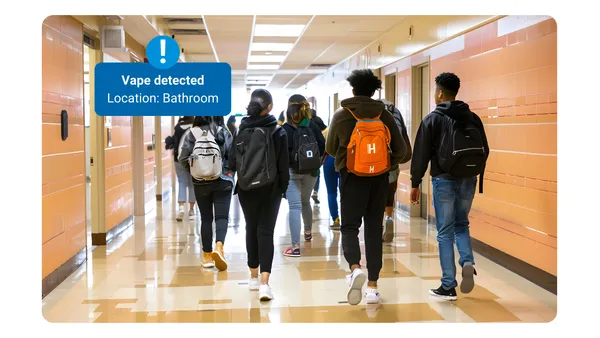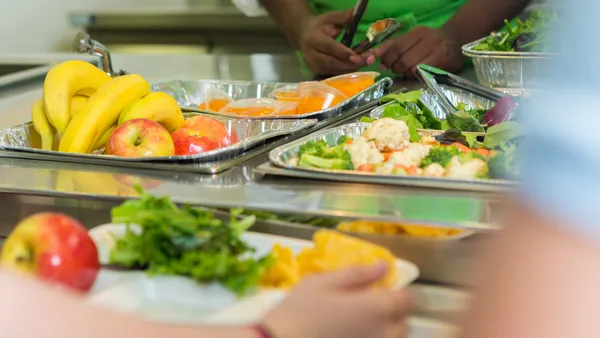Dive Brief:
-
In what has been called one of the largest education-related settlements in U.S. history, California has agreed to dedicate at least $2 billion to help students catch up from COVID-19-related learning loss.
-
According to the settlement agreement in Cayla J. v. State of California announced last week, the state will shift money from the existing Learning Recovery Emergency Block Grant fund to support local programs proven to increase student outcomes. A data-driven process will be used to identify students in the greatest need of learning recovery supports for math, English and attendance.
-
The settlement, however, is contingent on school districts verifying that at least $2 billion in uncommitted money is available through the block grant, as well as passage of legislation supporting the targeted interventions.
Dive Insight:
"The urgent vision of this historic settlement is not just to recoup the academic losses suffered by California’s most disadvantaged students, but to erase the opportunity gaps altogether exacerbated by the pandemic,” said Mark Rosenbaum, senior special counsel for strategic litigation for Public Counsel, in a statement.
The same statement claimed the settlement is "one of the largest education-related settlements in U.S. history."
Public Counsel is a Los Angeles-based nonprofit public interest law firm. Public Counsel, along with law firm Morrison Foerster, represented the student plaintiffs in their lawsuit first filed in November 2020.
Oakland REACH, which is an Oakland, California-based nonprofit that provides academic instruction, social-emotional enrichment and community support, among other initiatives, was a plaintiff in the original case. Community Coalition is a Los Angeles-based nonprofit that works to advance racial and economic justice and was also a plaintiff in the original case.
According to the statement from the Public Council, Community Coalition and Oakland REACH provided supports to students during remote learning.
The lawsuit alleged that students were harmed because of minimal instructional times during remote learning. The suit further claimed that Black and Latinx students from low-income families were especially disadvantaged due to lack of devices, internet connectivity and other digital tools.
Research on post-COVID student achievement in California found, as in many other states, declines in math and reading proficiency, according to a June 2023 report by the Public Policy Institute of California. Proficiency rates were lower for Black, Latino, Native American and Pacific Islander students, compared to their White, Asian American and Filipino peers.
A report released last week by researchers at Harvard, Stanford and Dartmouth universities shows students in 30 states recovered about one-third of the original loss in math achievement and one-quarter of the loss in reading in the 2022-23 school year. California lost ground in reading but showed gains in math.
Nationally, the data also found wider achievement gaps between high- and low-poverty districts since 2019.
Under the settlement, the defendants — the state, state Board of Education and state Department of Education — agreed to propose legislation that would encourage school districts to partner with community-based organizations with track records of success serving high-need students. Each district would determine the plan and programs to meet their students' needs as part of their annual Local Control and Accountability Plans. Districts would need to report on the success of the programs using measurable outcomes.
If the proposed legislation is not passed, or if the availability of $2 billion is not verified as agreed, the lawsuit could be reopened.
While schools and districts are tasked with the daily operations of serving students — and took various approaches to bring students back to in-person learning after school building closures — states hold the constitutional responsibility for educating students, according to legal experts.
The U.S. Department of Education, however, has investigated a handful of states and districts for lack of special education services during pandemic-related shutdowns. One of the investigations found that Los Angeles Unified School District inappropriately limited those services. LAUSD in 2022 agreed to provide make-up services for eligible students.








 Dive Awards
Dive Awards







